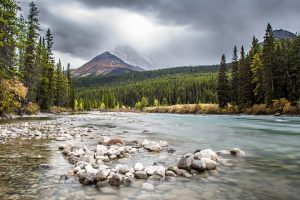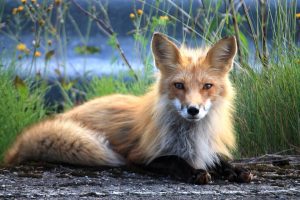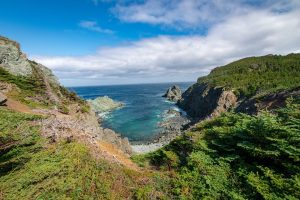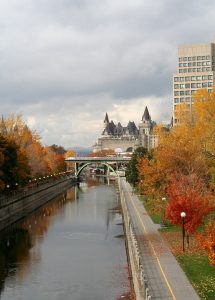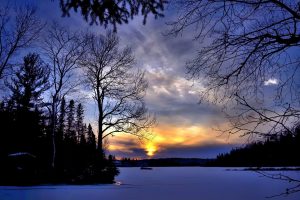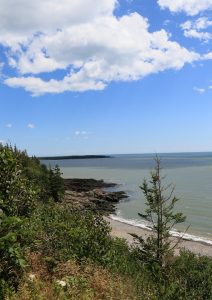Introduction to Quttinirpaaq National Park
Perched at the northernmost edge of the world in Nunavut, Canada, lies an arctic oasis so remote and pristine it is frequented more by muskoxen and polar bears than humans—Quttinirpaaq National Park. Its name, meaning ‘top of the world’ in Inuktut, is a fitting moniker for a place so otherworldly and secluded that it feels like stepping into a different realm. With an eternal landscape of ice caps, glaciers, and rugged mountains, Quttinirpaaq invites only the intrepid to traverse its untouched wilderness and experience solitude that reaches the soul.
This bastion of natural wonder is not just a theater of dramatic landscapes, but a living museum that preserves a complex history dating back millennia. It’s a land that has sustained Inuit cultures, adventurous explorers, and resilient wildlife, all withstanding the test of time amid extreme conditions. The park’s isolation contributes to its enchantment, creating an environment where visitors can listen for the call of the wild and hear their own heartbeat in response.
Historical Context of Quttinirpaaq National Park
To understand Quttinirpaaq National Park is to delve into the history of the Arctic, a place of profound cultural significance and survival. The land here has hosted Inuit peoples for thousands of years, standing as a testament to their enduring relationship with an unforgiving environment. It was under this expansive sky that generations learned to navigate, hunt, and sustain their communities, developing a deep spiritual connection with the land.
The park also bears the footsteps of legendary explorers seeking the North Pole or navigating the Northwest Passage, like the brave souls aboard the ill-fated Franklin expedition of 1845. These historical endeavors left behind scattered artifacts and gave rise to compelling narratives of triumph and tragedy. Today, the echoes of these voyages fill the air, inspiring modern-day adventurers to discover a connection to the past, both profound and humbling in scope.
Architectural Splendor in the Wilderness
Though devoid of traditional architecture, the natural formations within Quttinirpaaq National Park stand as monuments to the earth’s geological artistry. The park showcases soaring cliffs, deep fjords, and expansive ice fields that carve a breathtaking tableau across the horizon. Stunning in their austerity, these features whisper tales of a planet in perpetual flux, shaped over eons by the forces of nature.
The park’s architectural wonders extend below the surface in the form of ancient Thule sites—subterranean vestiges of the innovative sod and stone dwellings that once housed the ancestors of modern Inuit. Carefully preserved remains paint a picture of a resilient culture, exquisitely adapted to its surroundings. Whether viewing these historical ruins or marveling at the ice-capped majesty of Mount Barbeau, one can’t help but feel awe at the stark beauty molded by time and the elements.
Personal Experiences in Quttinirpaaq National Park
The intrepid souls who journey to Quttinirpaaq National Park are rewarded with personal experiences that defy description. Imagine pitching a tent where the sun barely dips below the horizon, offering near endless daylight to explore. Here, the silence is profound, broken only by the crack of a calving glacier or the soft patter of snowflakes on your tent.
Visitors may encounter the watchful gaze of a polar bear or follow the tracks of an arctic fox, weaving through a landscape seemingly untouched since time immemorial. This sense of pure, unfiltered adventure offers a rare opportunity to not just visit a place, but to immerse oneself entirely in an environment both extreme and exquisite. Each traveler leaves with a unique story, a personal chapter in the life of Quttinirpaaq, forever etched in memory.
The Evolution and Influence of Quttinirpaaq National Park
Although the timeless appearance of Quttinirpaaq National Park suggests a landscape unaltered by the ages, it has undergone significant transformations and influences throughout its existence. Originally recognized as an important site for protection and conservation, the park has evolved from a national playground to a critical sanctuary for scientific research and climate studies.
While its remote location means few will ever visit, the impact of Quttinirpaaq extends far beyond its icy shores. Its very existence contributes to the collective understanding of climate change, documenting the Arctic’s reaction to shifting global temperatures. As a key player in Canada’s storied tapestry, the park serves as both a guardian of history and a sentinel for the future, reminding all of the fragility and resilience of our natural world.
Quttinirpaaq National Park: A Timeless Call to Adventure
Quttinirpaaq National Park is not just a location; it’s an invitation to glimpse the world as it once was and could be once more. Suspended in a moment of both the ancient and the immediate, it beckons explorers to share in its story, a continuous narrative that has been unfolding for millennia.
To step into Quttinirpaaq is to accept a rare gift—the chance to be part of a land that speaks of history with every whispering wind across the tundra and every sparkling ice formation. It promises not just a visit, but an expedition into the very essence of the natural world, the likes of which are vanishing all too rapidly from our modern existence. For those willing to brave the journey, Quttinirpaaq National Park will not disappoint, offering up its splendors generously to the spirits daring enough to venture to the top of the world.
In the narrative of Canada’s grandeur, Quttinirpaaq National Park is akin to the final, breathtaking stanza of an epic poem, drawing adventurers from far and wide to partake in its storied legacy. Wanderers who have walked these ancient lands return forever changed, carrying with them the indelible mark of the High Arctic—a place where the earth’s heartbeat is felt through the soles of one’s boots. As the midnight sun casts long, golden Golden Origins & Evolution Golden, nestled in the Columbia River Valley, traces its roots back to the 1880s when European settlers arrived, anticipating prosperity from the Transcontinental Railroad project. The town soon thrived on lumber, agriculture, and mining, mercifully evading the ghost town fate of many contemporary boomtowns. Moreover, the arrival of Swiss guides in the early 20th century initiated... rays across the rugged terrain, those who dare to discover this corner of the world find themselves woven into the fabric of the Arctic’s eternal tale, forever part of its unfolding history and enduring spirit.
Golden Origins & Evolution Golden, nestled in the Columbia River Valley, traces its roots back to the 1880s when European settlers arrived, anticipating prosperity from the Transcontinental Railroad project. The town soon thrived on lumber, agriculture, and mining, mercifully evading the ghost town fate of many contemporary boomtowns. Moreover, the arrival of Swiss guides in the early 20th century initiated... rays across the rugged terrain, those who dare to discover this corner of the world find themselves woven into the fabric of the Arctic’s eternal tale, forever part of its unfolding history and enduring spirit.
